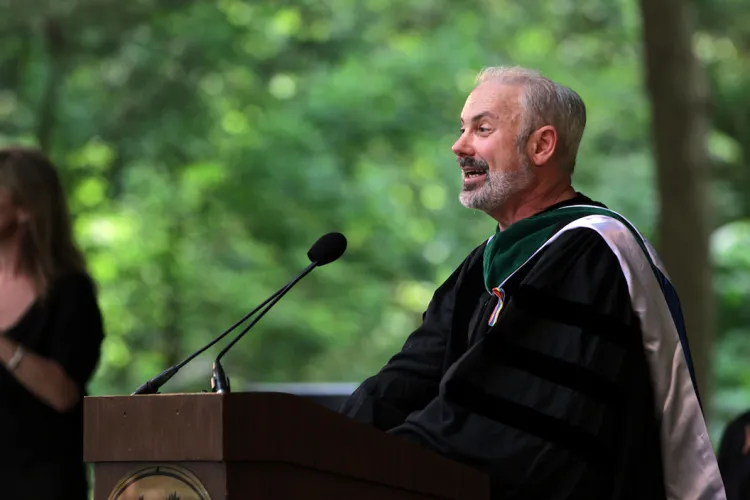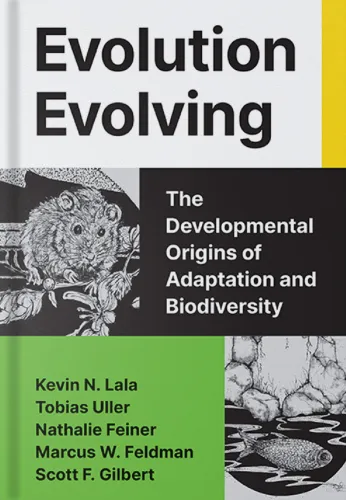New Insights on How and When Life Changes, Adapts

Scott Gilbert speaking at Baccalaureate in 2012.
Esteemed biologist and textbook author Scott Gilbert offers new insights on how and when life changes and adapts in his latest text, Evolution Evolving: The Developmental Origins of Adaptation and Biodiversity (Princeton University Press, 2024).
In Evolution Evolving, he and his co-authors (a team of leading biologists from the University of St. Andrews, Max Planck Institute for Evolutionary Biology, Lund University, and Stanford University) explore new scientific discoveries that reveal evolution occurs through selectable changes in embryonic and larval development. In doing so, they challenge standard evolutionary theories that have marginalized or ignored the ways in which changes in embryonic development — gene regulatory networks, epigenetics, and symbiosis — can cause evolutionary novelty.
“When one sees organisms as ‘teams’ of different species developing and metabolizing together, the world becomes a different place,” says Gilbert, who remains as productive and engaged as ever since retiring from the College in 2012. “This view of life changes our notions of physiology, development, immunity, evolution, and even philosophy. It opens up questions that haven't been asked previously.”
Gilbert, the Howard A. Schneiderman ’48 Professor Emeritus of Biology, taught developmental genetics, embryology, and the history of biology at Swarthmore. He joined the College’s faculty in 1980, and began writing textbooks in 1985. His book Developmental Biology is in its 13th edition and is one of the most widely used textbooks in the field of developmental biology. Gilbert’s other textbooks include Ecological Developmental Biology, and Fear, Wonder, and Science in the New Age of Reproductive Biotechnology. He co-authored a fourth textbook, Bioethics and the New Embryology, with his former students Anna Tyler ’03 and Emily Zackin ’02.

Gilbert’s contributions to the field of biology have led to numerous awards, including grants from the Guggenheim Foundation and National Science Foundation. Recently, he received the Biennial Prize for Evolutionary Developmental Biology at the meeting of the European Society for Evolutionary Developmental Biology in Helsinki.
Gilbert says since the 19th century, evolutionary theory has primarily dealt with the "survival of the fittest" variants within a population, and overlooked the "arrival of the fittest,” or how changes in embryonic development create the variations that nature selects. In Evolution Evolving, the authors argue that evolutionary theory is incomplete without comprehensive consideration of embryonic development.
Gilbert, who has emphasized this point for years, offers this artful distinction: “Development has the creativity of the artist; natural selection has the creativity of a curator.”



